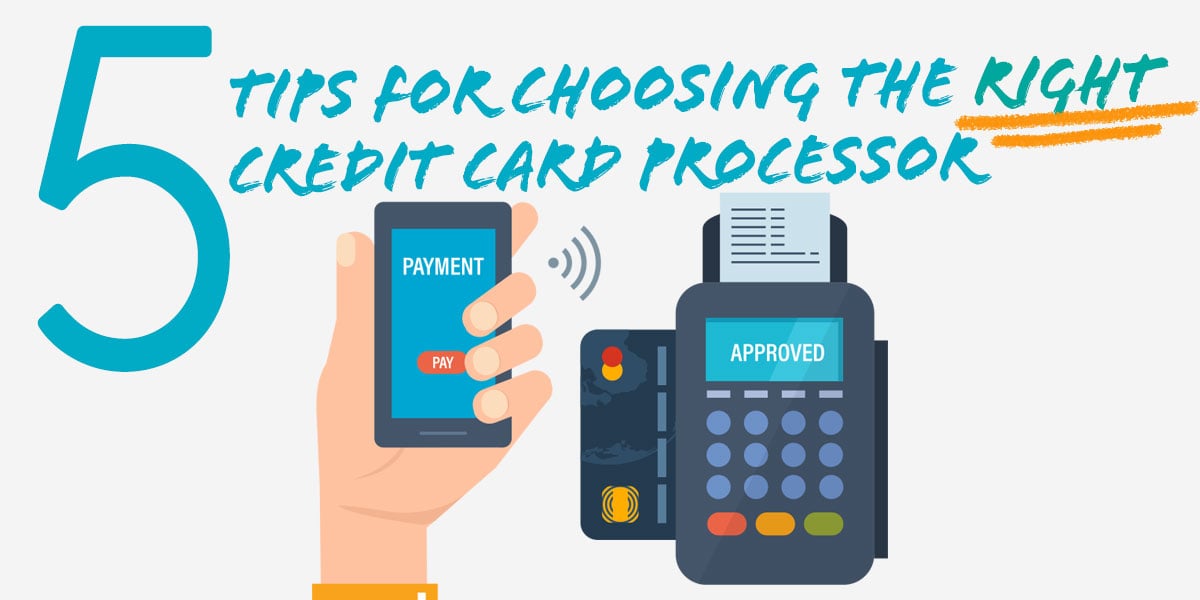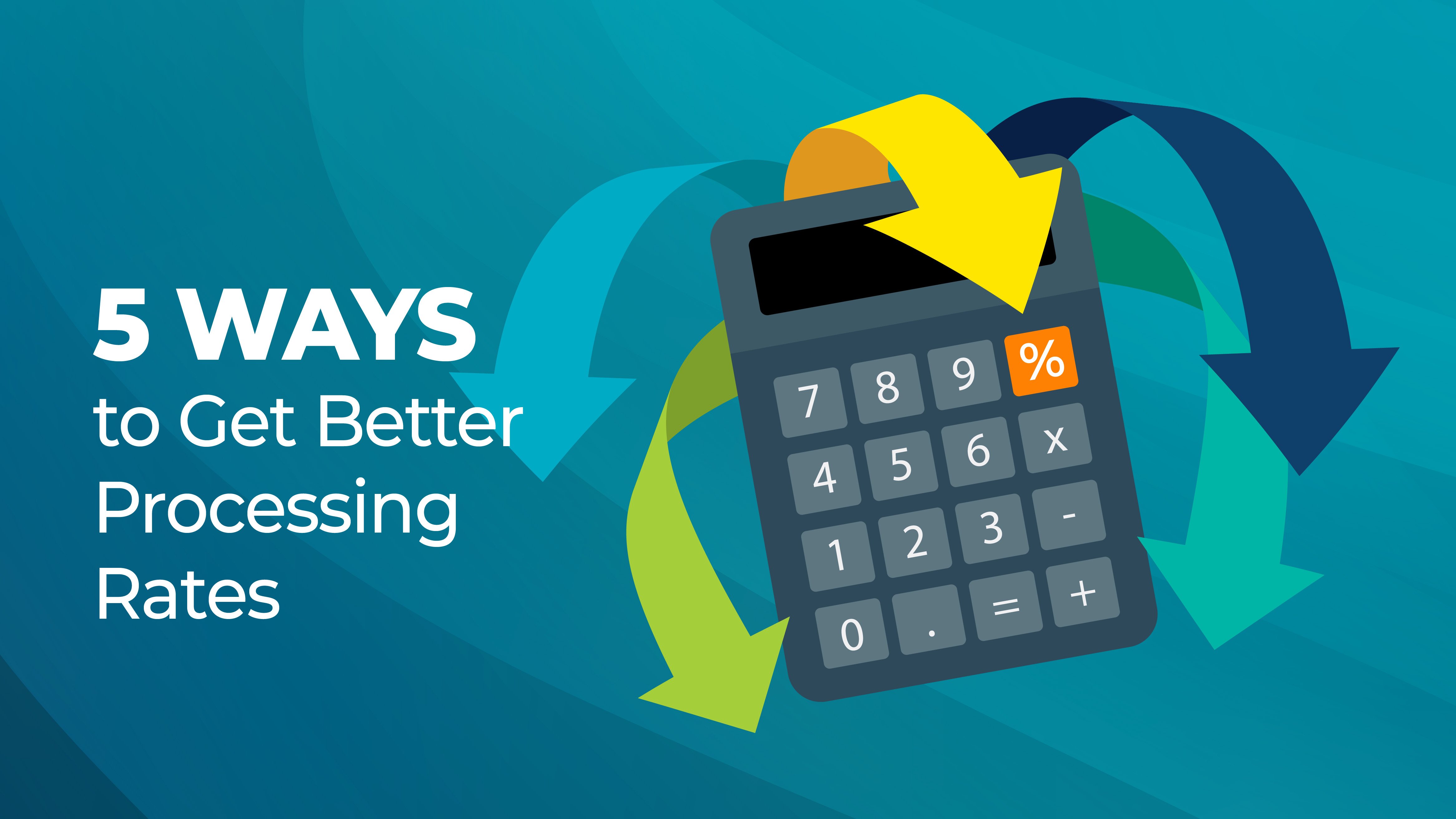Merchant Services can be overwhelming and it's important to familiarize and understand the options available to your business.
#1 - Fees
There are many fees associated with credit card processing. Here is a look at the fees you'll want to address and understand before signing your agreement.
Interchange fees
A fee charged for every credit card transaction. Your processor pays this 2% to 3.5% fee to the bank of the card type in each transaction. It fluctuates based on several factors, including the type of card accepted (credit, debit or a rewards card), the type of transaction (if it’s done in store, by phone, or online), and the size of each transaction. It's important to note in-store transactions will cost you less in interchange fees, since the card is physically present, meaning there’s less risk of fraud.
Monthly statement fees
The credit card processing company might charge you monthly statement fees to cover the expense of mailing you a statement. It costs about $10 per month on average but some offer it for free and some charge as high as $25 a month.
Application and/or Equipment setup fees and/or Equipment costs
You may pay an application fee, an equipment setup fee, and a fee to purchase the equipment if you need a terminal. Each of these fees can vary widely, depending on the company. Some companies might have special promotions such as providing you with a terminal for free. In this case, keep in mind that if there is a free terminal, you'll want to look at other fees to compare whether or not this promotion is your best option.
Monthly minimum fee
A monthly minimum amount in card transaction fees might be required by the processing company. For example, the company’s monthly minimum fee may be $25. If your total credit card transaction fees for the month were $20, the company will charge you $5 to make up the difference.
Monthly gateway access fee
Processors may charge you this monthly fee for providing a payment gateway, which transmits transaction data from your processing system to the credit card companies. Monthly fees cost approximately $10 to $30.
Early termination fee
Processors may charge you for an early cancellation of your contract. The fee can cost anywhere from a few hundred dollars to thousands. Make sure you ask what happens if you close your business or decide to use another processor.
It's important to ask about all fees. There may be other fees than listed above and you will want to understand any and all recurring fees.
#2 - Penalties
Penalties can be assessed by your credit card processor. Review if penalties ever assessed, how the penalty amount is calculated and when you might expect a penalty fee.
Some processors may require you to process a certain amount of monthly transactions to avoid a penalty fee. They might even charge an additional fee for a large transaction above your maximum limit. Imagine how happy you might be to land a $5,000 sale and then you find out you were charged an additional fee for running a transaction larger than $2,500.
Pro Tip: Ask what happens if you complete a transaction larger than the maximum you stated on your application. Agreeing to a minimum monthly volume or a maximum transaction amount can cut into your profit. Look for a credit card processor that will work with you instead of penalizing you for a great sale.
#3 - Contract
While the technical terms and legal jargon can be confusing, knowing what your processor and acquiring bank are responsible for and what you are responsible for makes the relationship between the partners involved flow smoothly. Understanding who the acquiring bank is and what their role is in the relationship is also very important. Take time to read the contract. Understand the contract term, when it ends, and what happens if you want to get out of the contract.
#4 - Security
Even more important than price is the type and level of security offered by a credit card processor. Tokenization technology and Point-to-Point Encryption (P2PE) offer protection against fraud. Tokenization is used to submit the Primary Account Number for customers who use tokens; P2PE encryption starts at the moment a debit or credit card is swiped and continues through the entire authorization process. With P2PE, data transmitted between parties remains completely secure. With these technologies, a breach is nearly impossible.
#5 - Benefits & Services
Other benefits provided by the processor could be the determining factor in your decision.
Online Access
Online dashboard that lets you do business on the day and time that you want to do business
PCI Compliance Assistance
PCI compliance is another consideration. For your company to accept payments, it may require compliance with the PCI Data Security Standard. This prevents security issues and provides early detection and necessary action in the event of fraudulent activity. Payment processors may offer services to assist in compliance procedures, alerts, and documentation.
ACH Payments
ACH Payments, the account number and/or routing number is transmitted through an ACH system, which is typically faster and more cost-efficient than standard checks. This boosts customer service, as well as company profits.
Reconciliation
Detailed reporting in one location is extremely important. Because the majority of payment processors are both gateway providers and processors, transactions are seldom tracked from start to finish.
Days Sales Outstanding (DSO)
DSO refers to the number of days it takes your company to collect on monies owed, with the goal being to keep the number of days to a minimum. For instance, it takes less time to collect money through credit cards, debit cards, and/or ACH payments than standard checks, so accepting faster payment options reduces DSO.
Customer Support
What happens if you run into technical problems at night or on the weekend with your credit card machine? Is someone going to be there to help? If you have questions about your monthly statement such as a specific fee, how easy is it to get the question answered? If you operate a 24/7 business, you need a processor that provides 24/7 customer support. If you typically work on your books on the weekends when your business is closed, is there someone to call to ask questions about your statement on the weekends? The fees might be a little higher from a processor that offers 24/7 service but in the long run, the cost of convenience is almost always worth paying a little more.
Future-Proof Solutions
Be aware that credit card processing companies like you to stick around and choosing a partner that has your business goals and interests in mind will help you in the long run. The importance of technology offered by your card processor may not be top priority, but in the future you will need to add capabilities for your customers. By selecting a full-service provider, you'll have the advantage of scaling your business with additional services and enhanced technology.
When seeking out the best credit card processor for your business start with recommendations from an industry association you belong to or visit the better business bureau. It is best to avoid selecting a bank as your card processor since they will sub-contract out your processing services and mark up fees leaving you to pay more.





